Big Bu$iness Lark
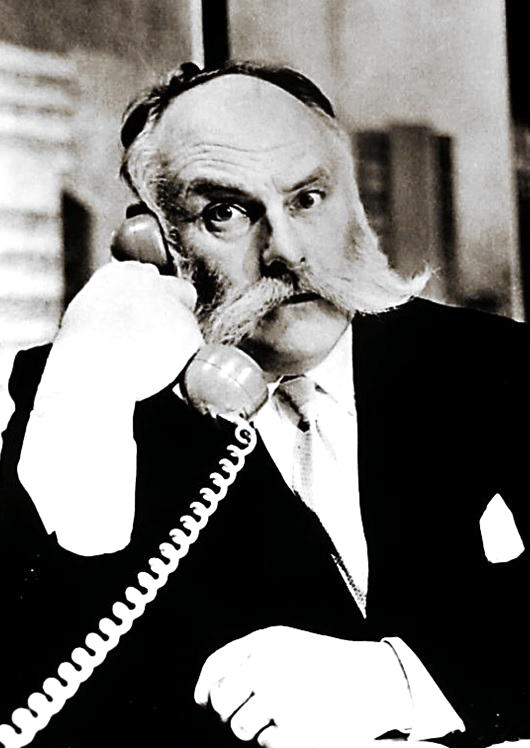
`The Big Business Lark` was the last incarnation of Lawrie Wyman`s `Lark` canon. The show aired in the UK during the summer months of 1969 in a world undergoing rapid change. Society was seemingly adopting new social values and the manufacturing industry was entering a fragile state within the UK economy. Organisations attempted to ride the popularity wave of `Swinging Britain`, which they hoped added a little kudos to potential export markets and allowed firms to promote their goods abroad.
While listening to `The Big Business Lark` with the benefit of hindsight, it is evident that the storylines and characterisations attempted to explore the comedic possibilities of the perceived world of commerce (but that of an earlier 1950s public) and to indulge the listener with stereotypes and scenarios that had by then fallen out of fashion with the mood of the time. In a world of `love and peace`, communes and alternative life-styles, this particular programme examined the way an old fashioned family firm continued to function in a feudal way. The somewhat tyrannical patriarch displayed historical perceptions of how relationships and business once ran, and the programme belonged to an era when the notion that `everyone-knew-their-place` was falling out of favour. The show was conceived and broadcast to a somewhat more informed listener with higher expectations of managers and businesses than individuals had been prepared to tolerate a decade earlier.
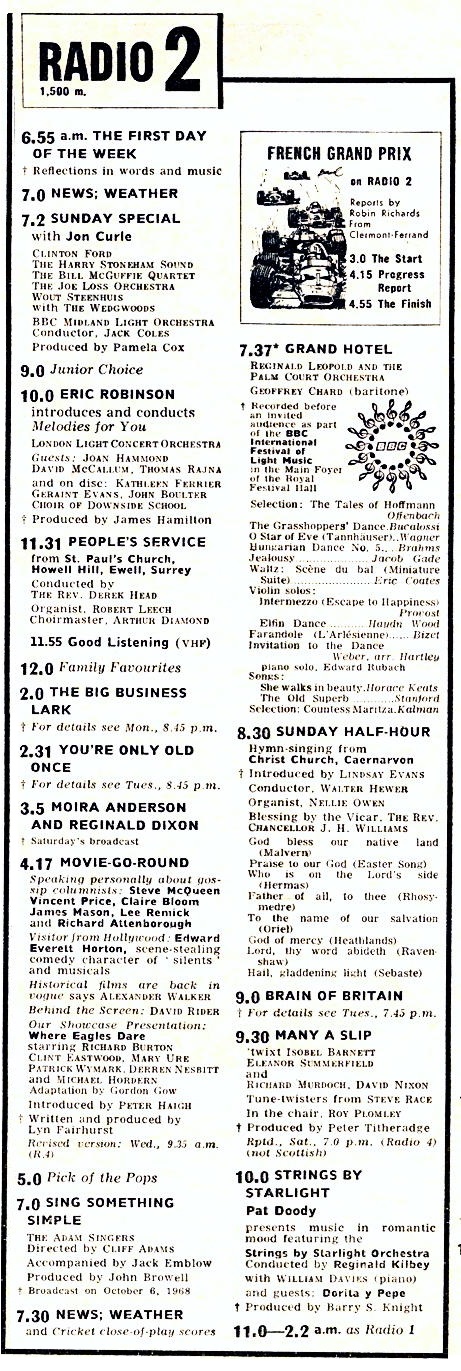
Evelyn Wells, the Production Secretary, admits that she has very few diary entries from this show. It is known that the show was originally conceived with an alternative leading actor. The role was turned down by that as yet unidentified person. Lawrie had no other option but to have a serious re-think and undertake a rapid re-write of the script, which ultimately meant that Jimmy Edwards eventually became the leading actor. It is not unreasonable to assume that with the alternative casting, the style and content of the show changed substantially from the original concept.
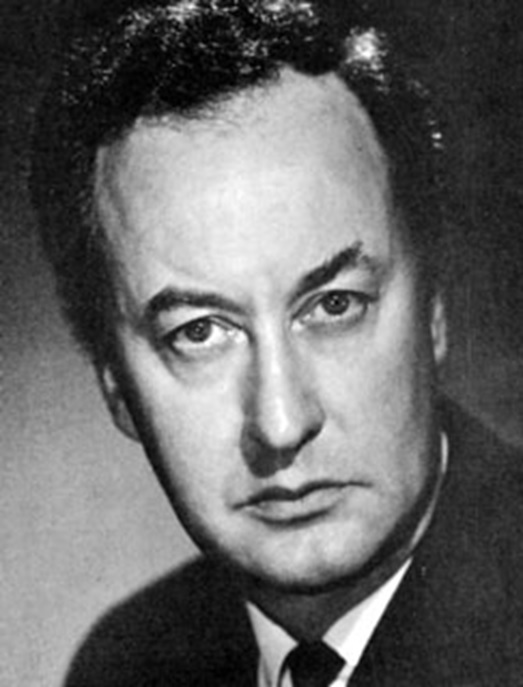
If you are a Jimmy Edwards fan, you will find plenty here to enjoy. His microphone technique is robust, fun and very entertaining. Frank Thornton ably portrays his dour son, desperately trying to forge ahead in life without his father calling the shots. Gwen Cherrell has the unenviable role of personal assistant, company secretary and foil for a lecherous boss.
The scripts include questionable remarks (by today’s standards) to co-workers, but unlike `The Navy Lark`, where sexism never raised its head, `The Big Business Lark` seems to have embraced `political incorrectness` and faltered into territory that gives today’s listeners cause to raise their eyebrows when Jim slaps bottoms and makes various remarks. Indeed both Alastair Scott Johnston and Lawrie Wyman were not fans of this series for many reasons, and this presumably is why it was the last of the ‘Larks’.

Ten years earlier, the Boulting Brothers explored the comedic potential of conflict when the social principles of a dictatorial boss were viewed alongside a young naïve employee (with a sense of political injustice) who is put into a unionised workforce. In this circumstance the `quarrels` are more complex because class and romance add further spice to the cauldron of emotions. The 1959 movie `I’m All Right Jack` with Ian Carmichael, Terry Thomas, Peter Sellers, Richard Attenborough, Margaret Rutherford, Dennis Price and Irene Handl makes for an interesting comparison. The film pertinently explores the relationship between the workers and the bosses. Humour is developed from individuals` sometimes absurd behaviour and situations.
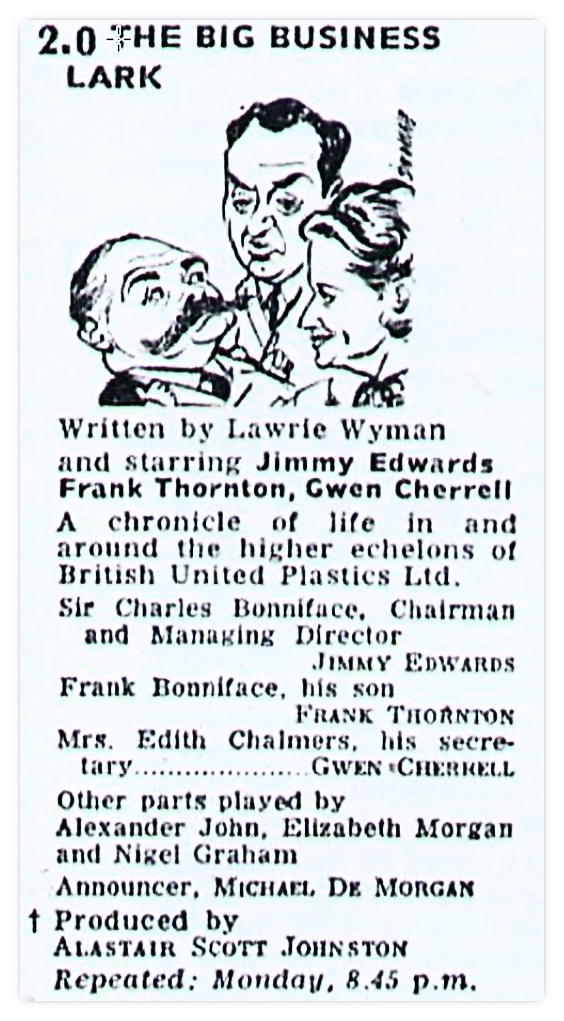
By comparison, Lawrie Wyman`s scripts were ostensibly much lighter of touch. No big social issues, no irony, but plenty of jibes about the faltering Harold Wilson government. In a time when satire was prevalent and news-stands had a variety of publications lampooning the status quo, `The Big Business Lark` had to work very hard to find its audience.
The script centred on its `big name actor` and the public’s perception and expectation of that one person’s performance. Jimmy Edwards played `Jimmy Edwards` – loud, brash and egocentric. The series delivered storylines that centred on the blustering head of British United Plastics and his behaviour.

Each week the company’s contracts for different Polystumer-based products formed the key component of the plot from which confrontation and humour were developed. Storylines are clearly fictional, but are recognisably from the pen of the creator of `The Navy Lark` with the announcer contextualising some aspect of the forthcoming show. Lawrie tended to re-work many familiar remarks and reactions uttered by various admirals and sea lords to suit new circumstances in the business world.
Alastair Scott Johnston`s production of `The Big Business Lark` immediately transports the listener into a bygone world of dynamic decision making, financial acumen and larger than life characters. How influenced he was by Patrick Wymark`s iconic performances in television’s `The Power Game`[1965-1969] is debatable. He had an impeccable ear for music and his choice of composition beautifully creates an impressive soundscape that captures the optimistic and bullish atmosphere of boardrooms and international commerce with rich vibrant orchestration and evocative musical interludes 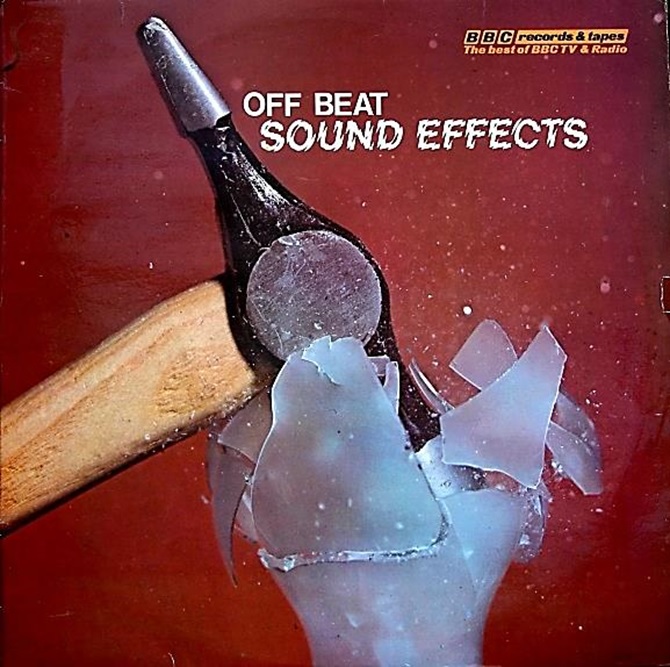 (linking scenes) that are light hearted, pacey and would not have sounded out of place in any `Carry On` or `cheeky chappie` style format movie of the 1960s.
(linking scenes) that are light hearted, pacey and would not have sounded out of place in any `Carry On` or `cheeky chappie` style format movie of the 1960s.
The series also employed sound effects that created strong aural pictures within the show to help listeners conjure up the action. Devotees of the Light Programme might be able to identify a variety of tracks used from `The Navy Lark`, `The Goons` and other shows.
There was just one series of 13 programmes, broadcast on the BBC Light Programme at 2pm on Sundays between 6.7.69 and 28.9.69 and repeated on Mondays at 8.45pm. Over the years we have tried to learn a little more about the show and its creation from the production team and cast but memories have faded and no-one appears to have any great affinity for the series: recollections are now non-existent. `The Big Business Lark` was not the show it was intended to be or could have been, but it demonstrates another facet of Lawrie`s prolific output.
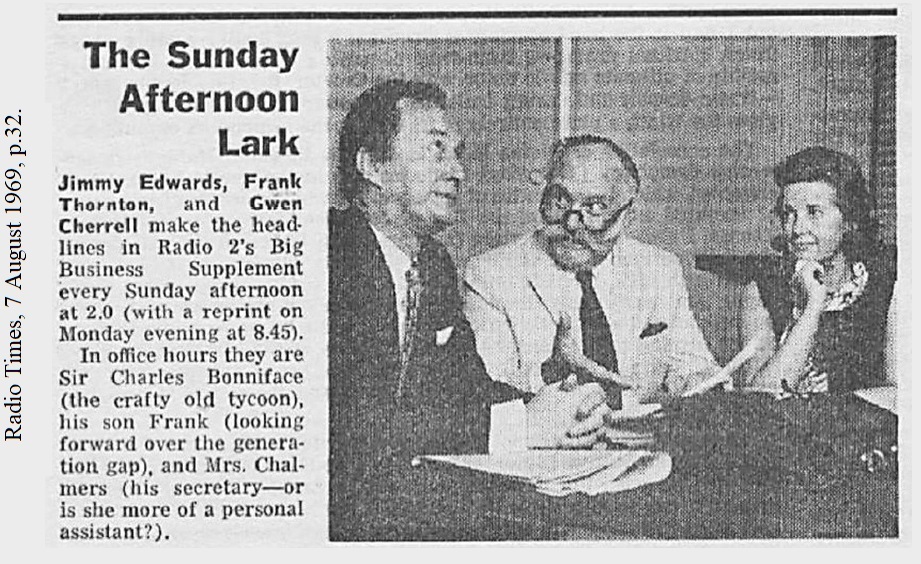
As with the other `Larks`, the show had a repertory style cast: three leading actors and three supporting cast carefully selected by the producer to meet the specific requirements of the scripts. It is amazing to hear how just two actresses can create the believable noise of a businessman’s harem in episode 11! Without a doubt, the cast had to be very versatile and linguistically agile to be capable of portraying a succession of different characters all in conversation when the script demanded a roomful of people.
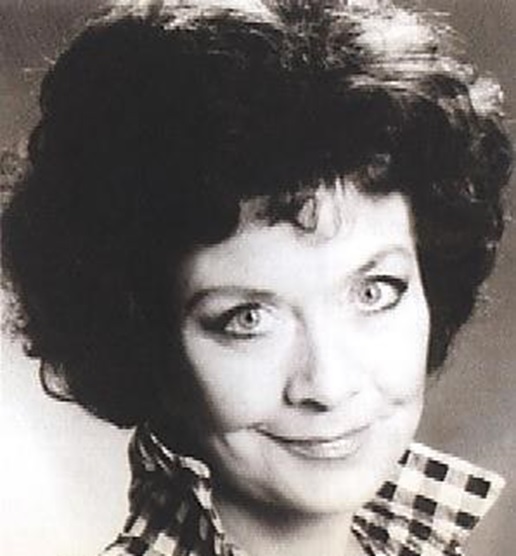
The other 50+ characters who appear in the show are superbly voiced by Elizabeth (Liz) Morgan, Alexander John and Nigel Graham, whose names ought not be too unfamiliar to you because Alastair Scott Johnston used them in `The Embassy Lark` and other shows he produced. If any observation can be made about the production values of the show, it is that although individual cast members give a polished professional performance, the `added value` of an enthusiastic cast interacting and enjoying the work inevitably generates that magic extra ingredient or `chemistry` that is not in the scripts but is so evident with the other `Larks`. The cast do appear to bond and ad lib from show 11 onwards: Jimmy Edwards feels able to move beyond the script, and other cast members similarly enjoy the freedom to be more light-hearted. End-of-term fever? Whatever it was, the show was much the stronger for it, and demonstrates what was missing earlier in the season.
| Alexander John | Nigel Graham | Elizabeth Morgan |
|---|---|---|
| Mr Holroyd (1) (6) | Mr Benson (1) (3) (10) | Mavis (1) |
| Mr Barnes, Mr Stokes (2) | Mr Sidney Potter (2) | Phoebe (2) |
| German Receptionist (3) | Hoskins (4) | Helga (3) |
| Mr Halpacker (4) | Claude St John Oakapple (5) | Sissy Bonniface (4) |
| David Evans (5) | Igor Grazinov, Mr Archie Bishop (6) | Gladys Bottomley (5) |
| Mr Stokes (6) (7) | Welsh Striker (7) | Debbie, Barbara, Miss Herxheimer (6) |
| Stanley the Liftman 5 6 7 8 9 11 12 | Chinese Restaurant Owner (8) | BoT Secretary (7) (12), Welsh Striker (7) |
| Pickwick Arms Proprietor (8) | Mr Earp, Angry Customer 1,2,3 (8) | Jessie (Birdie) Earp, Maisy, Gladys, Tricia (8) |
| Carlton Grande Manager (8) | Ellington King (9) | Maggie, Penelope (9) |
| Italian Maitre D` (8) | Mr Hinkin, Taxi Driver (1O) | Miss Short (10) (12), Nurse (10) |
| Basher Freemantle, Mr Turnbull (10) | The Sultan, BUP Oldest Employee (11) | Myrtle Burton, Fatima, Harem (11) |
| Zoo Keeper (11) | Corporal, Mr Burke (12) | French Usherette, Elsie Podmore (13) |
| Mr Stokes, Lt Col Banks (12) | Doorman, Talbot Smythe (13) | Samantha, Myrtle (continuity) (13) |
| Samuel J Packanacker (13) |
There do not appear to be any publicity photographs to accompany the series. Evelyn Wells was hugely busy at this time because stereo radio was changing accepted practices and Alastair’s workload was putting an unprecedented burden on his production team. `The Big Business Lark` slipped through the net image-wise.
The show quietly arrived on the airwaves during Wimbledon Week in 1969, rubbing shoulders with the British Open Golf Championship, only to suffer the ignominy of disappearing three months later during the political conference season without trace or lament. The summer is rarely an ideal time to launch a new light entertainment show: people have busier lives given long warm summer days and a chance to get out and about. It is very unusual for a new series to be launched during this season because radio audiences can rarely be relied upon to develop a loyalty to a show, when listening routines are invariably interrupted.

1969 was even more problematical. Protests against the Vietnam war continued to dominate the news; Northern Ireland became a cause for concern and British Troops were deployed there for a peace-keeping role; Hurricane Camille hit the Mississippi coast killing 248 people and causing US$1.5 billion in damage; Woodstock and Psychedelia were big news stories as were the Charles Manson murders; America had landed on the Moon; Ted Kennedy drove off a bridge at Chappaquiddick Island; Concorde successfully took to the air for the first time and Prince Charles had his Investiture at Carmarthen Castle, which Liz Morgan alludes to in character as a Welsh secretary. Humour came from `Monty Python`;  `Morecambe and Wise`; `Mad`; `Private Eye`; `Punch` and THE big film was `The Italian Job`. Anarchy and a sense of fun were ever present. `OZ` and `International Times` were setting the agenda for young adults whilst millions tuned in to watch `It’s a Knock-Out`, which consisted of strategic game play for up to 6 teams wearing eccentric costumes and tackling the strangest of tasks.
`Morecambe and Wise`; `Mad`; `Private Eye`; `Punch` and THE big film was `The Italian Job`. Anarchy and a sense of fun were ever present. `OZ` and `International Times` were setting the agenda for young adults whilst millions tuned in to watch `It’s a Knock-Out`, which consisted of strategic game play for up to 6 teams wearing eccentric costumes and tackling the strangest of tasks.
`The Big Business Lark` did not tap into this changing style of humour. The programme `ploughed its own furrow`. The show epitomised conformity, social differences and management`s predatory behaviour. To the audiences of the day this must have seemed old fashioned compared to the way the world was perceived to be behaving. Today’s listener will have the advantage of historical perspective. The show can be enjoyed for different reasons. It represents an interesting adaptation of `The Navy Lark` format, and it was created by the very same writer. The programme highlights the huge difference between ensemble productions and programmes written to provide a vehicle for a `star` like Jimmy Edwards. It shows how the world changed in a single lifetime, and that bosses could no longer behave with impunity as they might once have wished.

Long lunch hours and cavalier attitudes towards the workforce have significantly altered, as has the way commerce is owned and run - with fewer bosses being able to manipulate and mistreat their workforce in the manner that Jim enjoyed.
Lawrie`s writing employs the technique of using `absent friends`: in every show Mr Coggins` name is mentioned but the character never appears. Over successive storylines, one learns more about his endeavours and his travels. The listener is given a sympathetic picture of this `innocent` who is `abroad` in a mysterious world. Mr Coggins is an accidental traveller in life. He seems to ricochet around the country with effortless abandon yet never quite manages to arrive. Lawrie Wyman creates (in absentia) a likeable, whimsical chap who is always prepared to `go that extra mile`! Mr Coggins becomes a core component of the show and his progress is always a delightful interlude in the main plot.
The recording quality of the shows is `good `. Indeed, library users will discover listening to these shows to be an enjoyable way to while away thirty minutes of leisure time.
The programmes were never given official titles but we have used the commentary employed by the announcer for each show to name each programme and it is these credits along with the original broadcast date that are used on the accompanying notes.
It would be fascinating after hearing the shows to think back to 1969 and come up with ideas for who else Alastair Scott Johnston and Lawrie Wyman might have cast as head of British United Plastics. Frank Thornton and Gwen Cherrell were already cast so you need to think of who could have been `the Senior Partner`. There is no reason to think the actor has to exhibit any of the characteristics Jimmy Edwards exemplifies, or even be male, so let your imaginations run free.
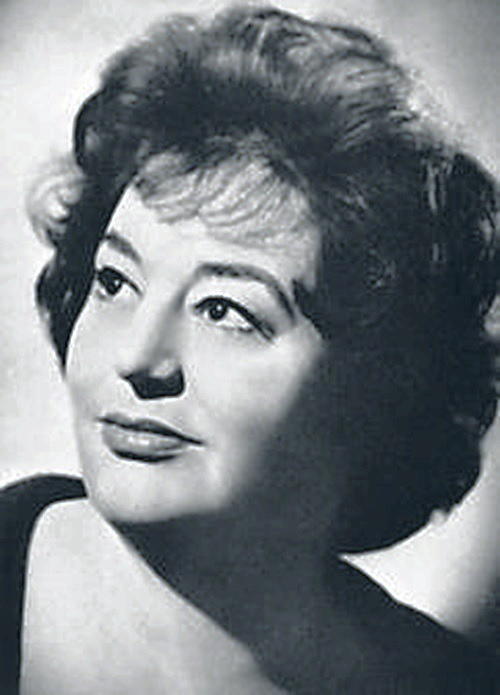
To start the ball rolling, can I suggest Hattie Jacques? Her ability to be authoritative, vulnerable yet smoulder and exhibit passion could have made for a very humorous storyline especially as women’s liberation was on the social agenda. She enjoyed huge popularity with the radio and film audiences of the day and had the skill to portray leading roles and ensemble pieces.
I feel that Lawrie Wyman would have produced a very different show - possibly one to match the success of `The Navy Lark`, had he involved Hattie. He would have avoided the bottom pinching and flirtatious remarks that were unsubtle and desperate characterisation devices.
He could have initiated a gender war with Ethel, her secretary, against the lack lustre performance of her co-workers, and the show could have looked at frugality against the spendthrift approaches of some of the management team. Hattie gave us two cracking performances in `The Navy Lark` movie and `Watch Your Stern`, so she was very familiar with Lawrie`s scripts and expectations.
Now it`s your turn . . .
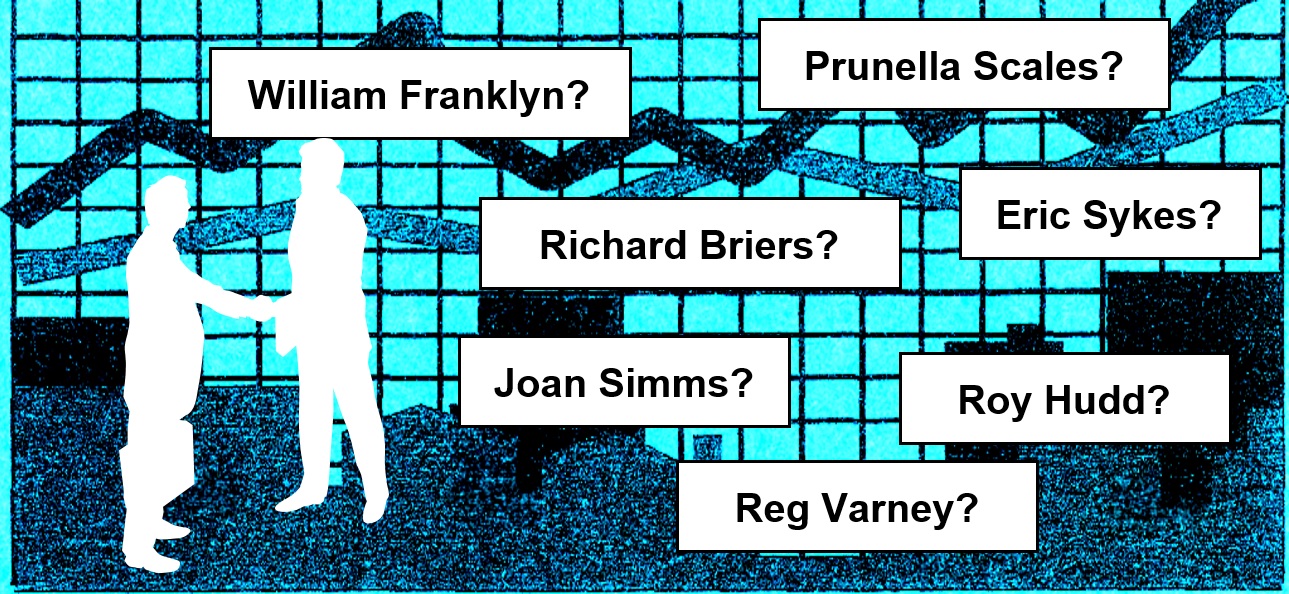
Text © Fred Vintner, 2021.